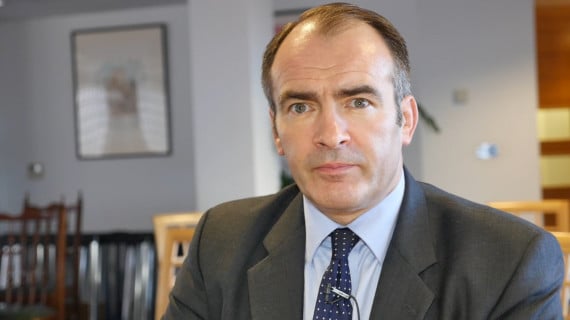A proposal that low earners shouldn’t pay National Insurance would cost the Manx exchequer £9m a year.
Douglas East MHK Chris Robertshaw has tabled a motion to next week’s Tynwald calling for a targeted rebate of employee National Insurance contributions to benefit the low-paid.
He believes this should apply to those earning below the living wage of £9.76 per hour or £19,241 a year.
But Treasury Minister Alfred Cannan has written to Tynwald members urging them to oppose the move.
He says the current system of National Insurance, which funds the state pension and contributes towards the cost of health services and certain welfare benefits, provides ’vital support to our nation’ and ’tinkering with it would be an absolute disaster’.
He said he had asked for backbencher Mr Robertshaw’s plan to be costed and the figure was an estimated £9m a year.
Mr Cannan warned that should unemployment rise, this could tip the National Insurance Fund back into the red, just as it had been between 2012-13 and 2015-16.
He told members: ’Our current policy is that everybody earning (within current set earnings limits) should pay a contribution towards their state pension and have eligibility to receive in-work benefits to support them at critical periods.
’It must also be considered that the delicate balance of payments could be altered by a significant growth in unemployment.
’We should be extremely mindful that our unemployment rate is less than 1% of the working population but that these figures could easily change.
’I ask members to consider that unemployment rates of three to four times the current levels were in existence only a few years ago and that these proposed changes could seriously alter National Insurance income under such circumstances.’
The current earnings threshold below which you don’t pay National Insurance is £125 a week or £6,500 a year.
threshold
Mr Cannan said if the threshold was increased even to just the level of minimum wage of £7.50 an hour, it would still cost the exchequer many millions.
National Insurance is based on earnings from employment, not total income, which can include other sources.
Mr Cannan said: ’You are making a percentage contribution to protect your circumstances. For most people it’s about collecting the state pension which for many is a rock. Tinkering with that would be absolute disaster.’
The UK has a higher threshold of £166 per week or £8,632 a year below which you don’t pay National Insurance contributions.
In the Conservatives’ election manifesto, UK Prime Minister Boris Johnson has pledged to raise that threshold to £9,500 next year and then in phases to a target of £12,000.
Asked if there would be pressure to follow suit, should the Tories regain power, Mr Cannan said: ’We are always mindful of both tax and National Insurance rates that are being applied in the UK.
’If those threshold rises were applied, we would have to take a close look at our thresholds in the island to ensure that we remained competitive from an earnings perspective but, we should not be forced into short term populism if there is any danger to the longer term sustainability of vital state pension payments.’
He added: ’It is likely in the future that we will bring proposals to further reform National Insurance, particularly in light of the escalating costs of providing healthcare and the reforms that are being made to the NHS in the island.
’These will be carefully thought out and fully costed in order to ensure that the ongoing good governance of the National Insurance Fund remains at the heartbeat of our fiscal management.’
Any employee earning £20,000 would pay £600 tax and £1,485 NI. In the UK they would pay £1,500 income tax and £1,364 NI. So the islander would be £779 better off.
If the UK did raise the threshold to £9,500, the Isle of Man employee would still be £675 better off, if other taxes are taken into account.




.jpeg?width=209&height=140&crop=209:145,smart&quality=75)
Comments
This article has no comments yet. Be the first to leave a comment.